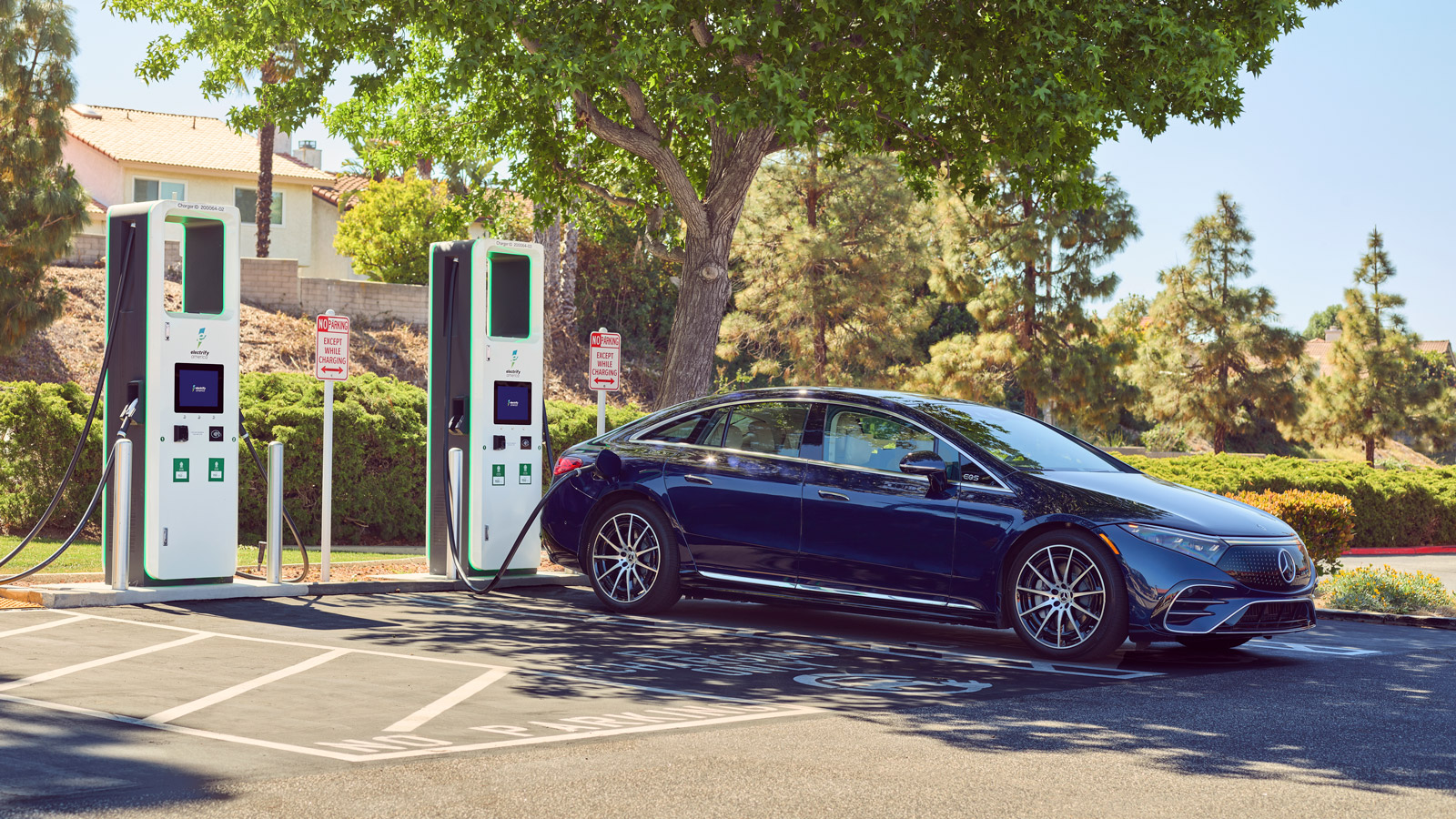EVs Are Finally (Sort Of) Reckoning With The Eternal Charging Standard Problem
Electrify America ditching CHAdeMO signals that we should all probably get used to this.
Given the variety of EVs on the market today and the sheer pace at which the tech is advancing, it was only a matter of time before the auto industry and infrastructure planners found themselves facing the same kinds of dilemmas tech companies do when they're forced to drop old standards and adopt new ones.
A common fast-charging standard has emerged for every EV that isn't made by Tesla, and it's called CCS. CHAdeMO, the outgoing standard, is really only used by the Nissan Leaf anymore. But with the upcoming Ariya electric crossover, Nissan is transitioning to CCS just like everyone else pretty much already has. That essentially puts the nail in the coffin for CHAdeMO, though its days have certainly been numbered for a while now.
Electrify America, which operates roughly 2,600 DC fast chargers across the country, quietly announced in its Cycle 3 Investment Plan back in June that it will begin phasing out CHAdeMO plugs next year in favor of CCS-only terminals outside California. However, nobody noticed until InsideEVs unearthed it earlier this week.
This would seem to leave Leaf owners out in the cold, until you realize how rarely CHAdeMO was actually being used on the company's equipment. From Page 46 of the Investment Plan (emphasis mine):
In recent years, the automotive industry has converged on CCS as the non-proprietary standard of choice for vehicles in the U.S. Nissan, the last BEV manufacturer producing CHAdeMO vehicles for the North American market, has announced that the upcoming Ariya will use CCS charging. As sales of all new BEVs shift to CCS, Electrify America forecasts that over 90% of the non-Tesla BEVs in operation will use CCS by 2025. Electrify America is already seeing this shift at our stations. CHAdeMO usage (including Tesla via CHAdeMO adapter) accounted for just 9% of station usage in the first quarter of 2021, down from 15% in 2019, despite CHAdeMO chargers making up over 20% of all DCFC equipment at our stations. In addition, whereas historically a CHAdeMO adapter was the only way to fast charge Tesla vehicles outside of the Supercharger network, in late-2020 Setec Power released a CCS to Tesla adapter, thereby unlocking CCS chargers to interested Tesla drivers.
If you do own a Leaf and plan to keep it for a good while, it's not like Electrify America is going to start destroying CHAdeMO plugs where they're already installed. The company says it will "focus its Cycle 3 investment on the future of electrification and deploy CCS as the non-proprietary standard at our stations." In other words, this impacts what Electrify America will build in the future rather that what exists today.
It's also worth noting that J-1772 plugs are far more widely available and basically used in everything (including the Leaf), though they recharge at slower Level 2 speeds. Searching my immediate surroundings northwest of the I-78 corridor in New Jersey via PlugShare, it's far more difficult to locate a CHAdeMO-equipped station than a J-1772- or CCS-equipped one.
In fact, I'm amazed a CHAdeMO-to-CCS adapter, like the one mentioned in the excerpt for Tesla's proprietary standard, doesn't exist yet. I'm especially surprised Nissan hasn't funded its development, considering its customers are the ones that will be directly affected by this decision and the company continues to sell the Leaf today with the legacy port intact.
The industry has effectively rallied around CCS, and even Tesla will supposedly make its "Supercharger network open to other cars this year," if you're the sort of person that places any faith in an Elon Musk tweet. Things are converging the way they always should have, at least for the moment. Still, I wonder if cars are now cursed to change standards every few generations the same way your smartphone does. Because everyone loves that.
